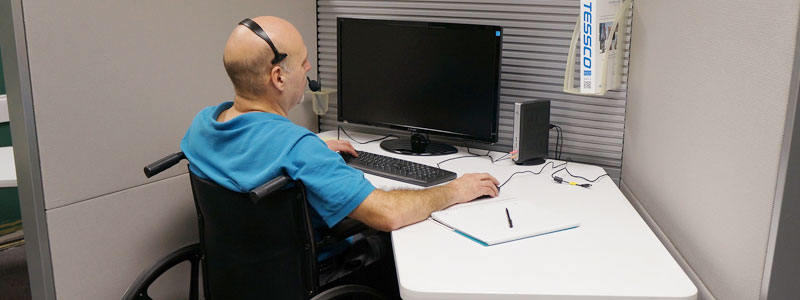Should I Expect Reasonable Accommodation after a Workplace Injury?
The Americans with Disabilities Act (ADA) provides legal protection for workers who would otherwise qualify for a job but are turned away because of an injury or illness that the employer must accommodate by adjusting the job requirements. This act most directly applies to people in the application process of a new job, but can […]

July 23, 2018

The Americans with Disabilities Act (ADA) provides legal protection for workers who would otherwise qualify for a job but are turned away because of an injury or illness that the employer must accommodate by adjusting the job requirements.
This act most directly applies to people in the application process of a new job, but can also be used at the end of a workers’ compensation claim under certain circumstances.
Reasonable Accommodation

Employees who qualify for the essential functions of a job but who are unable to perform them in the standard way should not be discriminated against or turned down if a reasonable accommodation would allow them to perform the job well.
Purposely loose in definition, accommodations are any change to the performance or evaluation of certain tasks that allow a person with impairments to perform the necessary tasks with relative ease.
Accommodations can include:
- Making the work location accessible
- Adjusting work hours as needed
- Purchasing and installing specialized equipment
- Providing interpreters and/or readers
Under the protections of the ADA and other laws like it, people who suffer from disabling illnesses or injuries have the right to the full salary they can reasonably earn, even if the job they apply for doesn’t perfectly match their abilities on first sight.
Limits on Accommodation
The ADA doesn’t serve as a cure-all, however. It also protects employers from “undue hardship,” usually a significant expense or unreasonable difficulty. For workers who were formerly able to perform heavy-duty or specialized tasks, and who, after being injured, will never be able to work at the same capacity, the ADA releases the employer from providing accommodation.
What this means is that, while it helps to create equal opportunities for people with differing levels of ability, the ADA does not entitle workers to their former job if they can no longer perform it at full capacity.
However, workers’ compensation laws also play a part in this tangle of legal precedent.
Workers’ Compensation and the ADA

Reasonable accommodation for a workplace injury may become trickier when it involves the employer’s costs of providing workers’ compensation. Generally speaking, though most workers may not think about the need for reasonable accommodation when they are first injured, the protections under the ADA take effect as soon as the worker experiences their injury.
What this means is that the employee should constantly and proactively evaluate his or her condition to see 1) whether it’s possible to return to work in the same or a similar function, and 2) whether the worker will need some kind of altered schedule, task, or other accommodation.
These conversations can be tough to have because the employer must balance the interest of both the worker (under workers’ compensation) and the business (payout and costs associated with the accommodation). The ADA protects the worker in this situation by prescribing a “flexible, interactive process” between the worker and employer to solve the problem of their disability. This means the worker is allowed to dialogue with the employer about the environments in which they need and prefer to work, and the employer seeks to meet those needs without taking unnecessary burdens.
Types of Injuries Eligible for Accommodation
Not every workplace injury is the same, and they aren’t all treated the same way by the law. Minor injuries and even temporary disabilities may not qualify for reasonable accommodation on the basis that the worker will eventually return to full capacity.
In cases like these, the employer may recommend or mandate a trial period of light-duty work as a kind of occupational therapy. This way, the injured worker has a chance to work and earn wages through their recovery, but the employer isn’t on the hook for the worker’s full, pre-injury salary.
Additional Protection from a Workers’ Compensation Attorney
Though the ADA and Indiana’s workers’ compensation laws work together to protect injured Hoosiers, not every employer is as cooperative as they should be. If you feel you’ve been wrongly denied compensation or accommodation for your permanent disability, you may be able to file a lawsuit to earn what you deserve.
Hensley Legal Group’s workers’ compensation attorneys are always ready to take your call. Your conversation with us is always free, and we’ll help you figure out if you’ve got a viable case on your hands. Call or contact us online today.